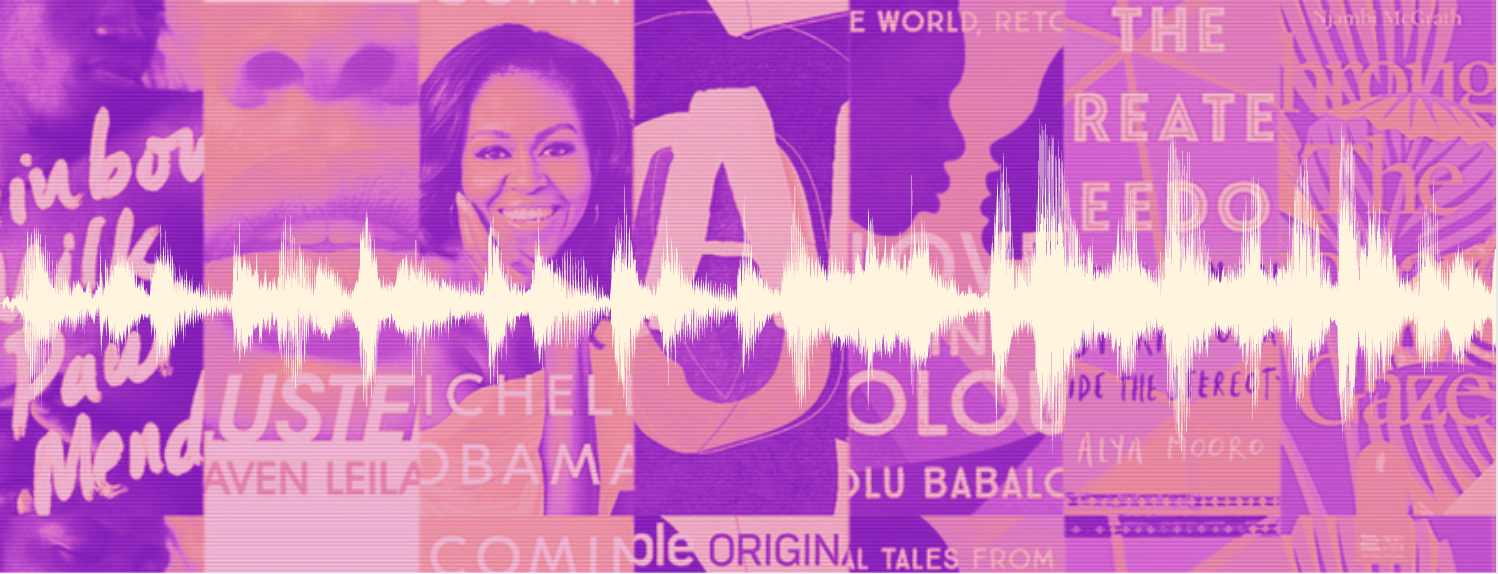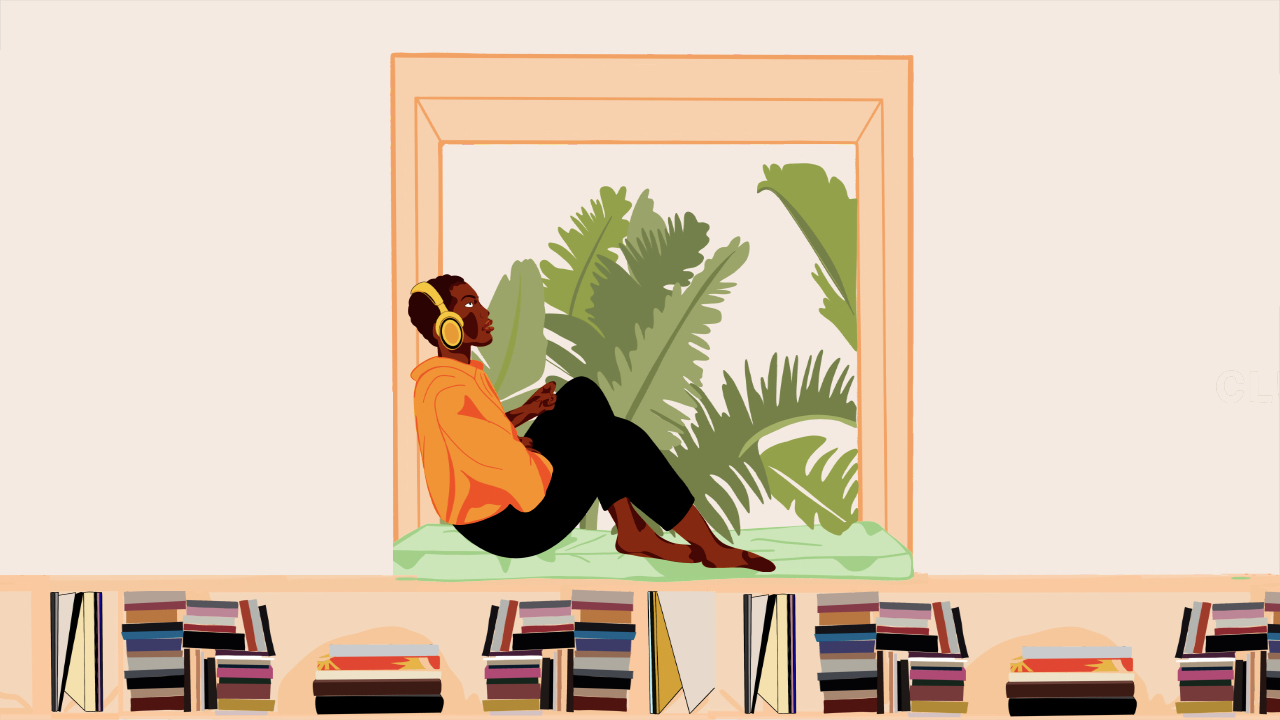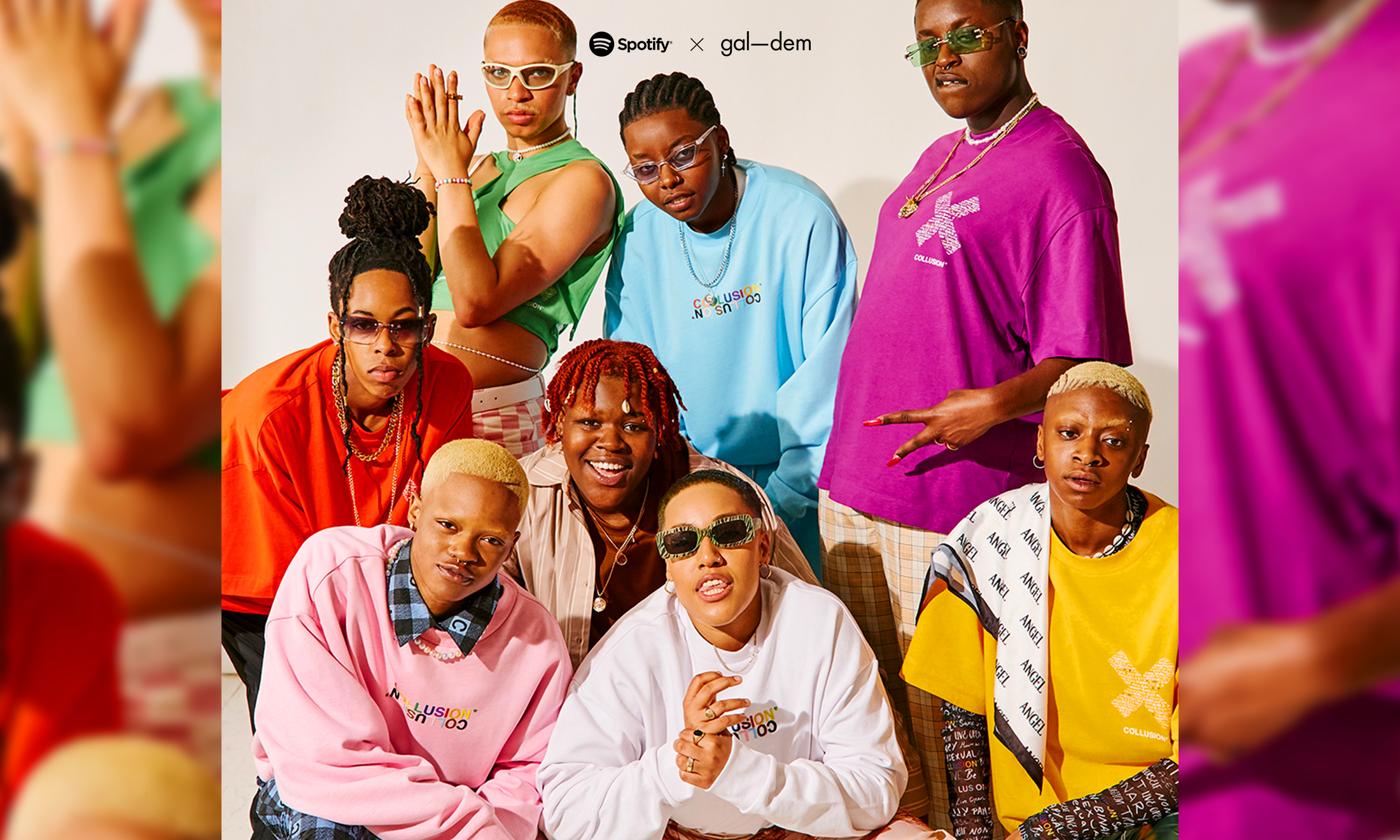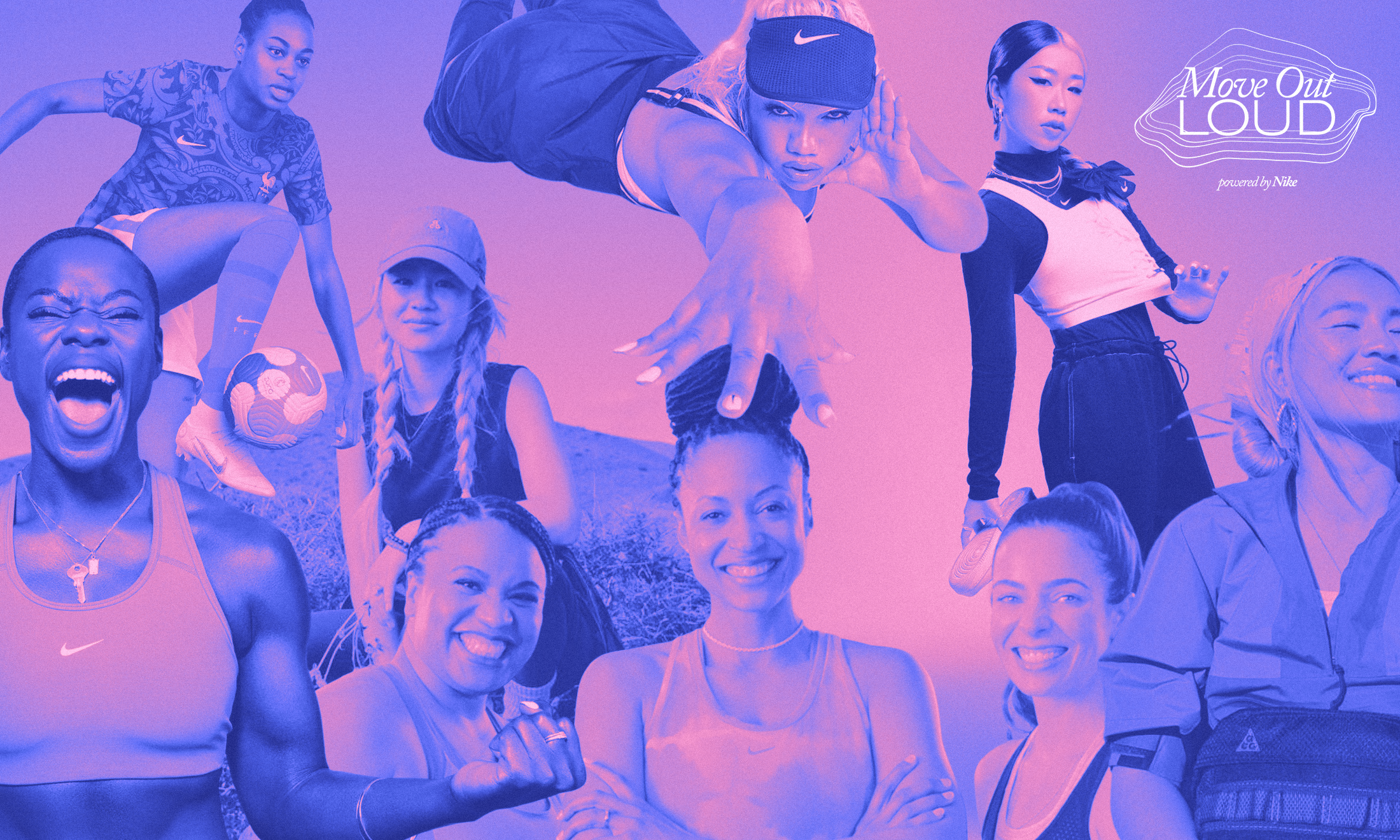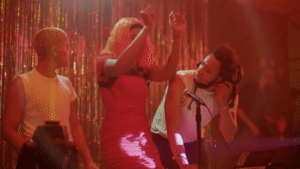Laura Kirwan-Ashman on writing horror for black queer communities
Tobi Kyeremateng speaks to Laura Kirwan-Ashman about the production of her queer audio-horror 'Sour Hall'
Tobi Kyeremateng
10 Apr 2021
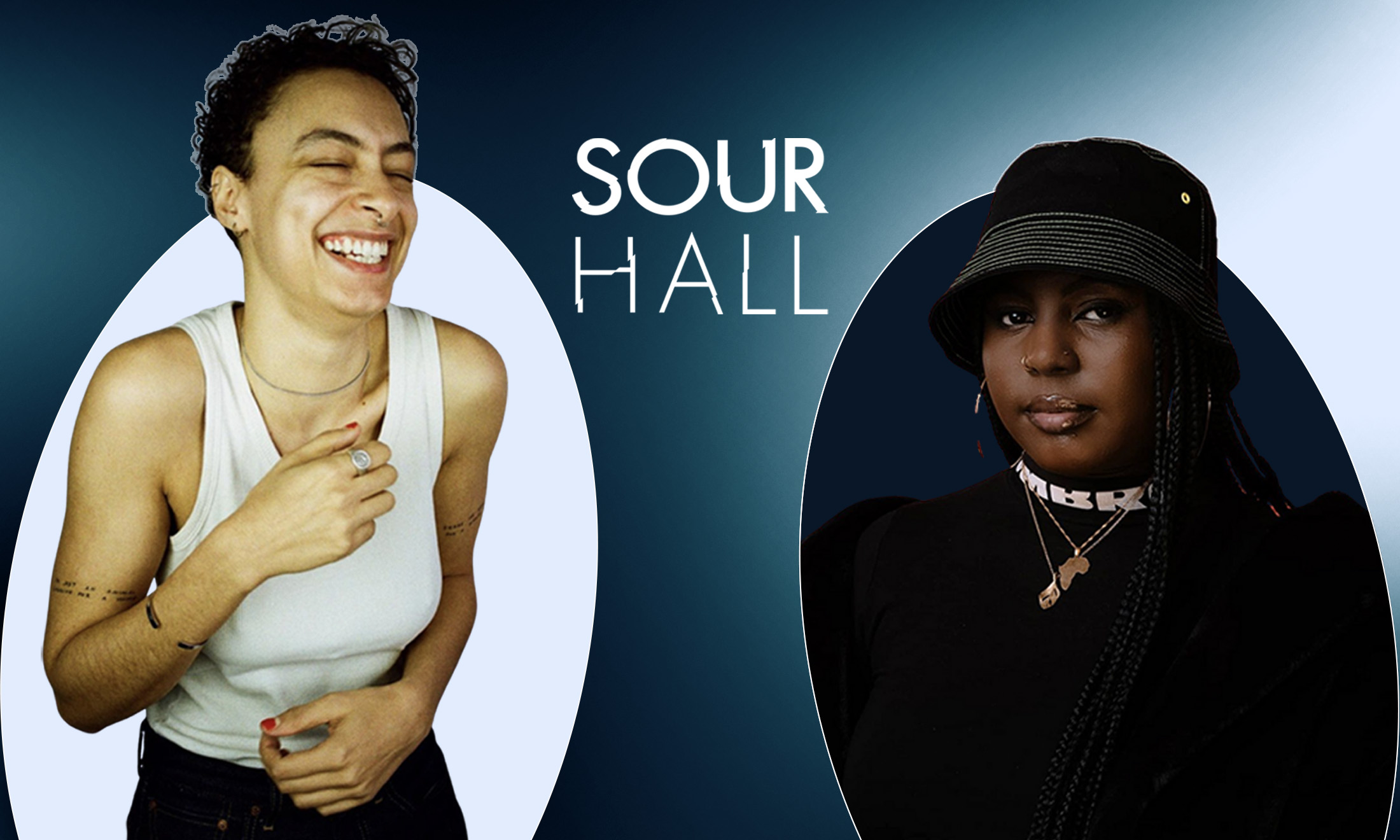
Laura Kirwan Ashman & Tobi Kyeremateng
Produced in partnership with Audible
The very first time I encountered writer-director Laura Kirwan-Ashman in the flesh is at the ever growing QTIPOC club night, Pxssy Palace. It’s easy to feel as if you know someone when you’ve been following them on social media for years, and I too experienced a wave of familiarity when I spotted her bright pink suit combo in tandem with the ‘C.E.HOE’ theme. Laura appears as someone that has never been one to shy away from her own queer chic panache, which must be why queer womxn, trans, non-binary and intersex black people and people of colour speak loudly in her work.
Over the last five years, Laura has had her roots firmly in visual storytelling largely exploring queerness, blackness and the female experience through film and documentary. Yet when Audible contacted her during the first lockdown to adapt the short fiction horror story Sour Hall – written by writer Naomi Booth in Hag: Forgotten Folktales Retold – into a series of six 30-minute audio episodes, she was overwhelmed. “It was a lot of firsts for me,” she tells me over Zoom. “I still don’t really know how I got the job!”. The end of her sentence clipped with a slight guffaw of disbelief.
She appears to still be half-asleep from catching up on counting sheep after a night of writing Hannibal fan-fiction and sporting a black t-shirt with the words “LESBIAN HAUNTED BY A GHOST” printed in large, white block letters. It’s very on brand. “This was the first headline that came out about Sour Hall and my first headline as a series writer,” Laura laughs, “and, it’s like, of course this would be the title! It’s hilarious”.
In true Laura fashion, the making of Sour Hall didn’t take on the typical process of creating an audio-drama, and in the winter of 2020 Laura would find herself standing in a farm in Yorkshire with a production crew and creepy-looking 360 binaural sound dummy to hand. Her unboxing of the horror genre draws from the intimate relationship of main characters Ash and George, an interracial lesbian couple that move to Sour Hall farm, only to be confronted by the unravellings of their traumas and the realities of their secrets. For a first attempt at approaching both horror and audio, Laura finds a way to indulge in the transformative power of empathy as a tool for healing. It draws you in and pulls you out of the listening experience of Sour Hall, like a tug of war between your heart and your nerves. The truths love brings forward are tough, but when it’s right, God – isn’t it magical? And if our conversation underlined anything, it was just that.
“Laura finds a way to indulge in the transformative power of empathy as a tool for healing.”
Sour Hall was a myriad of firsts for you as an artist – how did that make you feel?
I’m not a horror writer and most people that are into horror are REALLY into horror. Like, that’s their thing. I’d never written for audio before. I’m not massively aware of the audio-drama world. I’d never done an adaptation before. I really loved the original short story by Naomi Booth. It really grabbed me. Femgaze and queer women and folklore and all these things I’m really interested in. It didn’t feel like a traditional horror project that was like “oh this is purely designed to scare the shit out of you”, it was very rooted in emotion and relationships which is very much my storytelling ideology.
Outside of the more generic horror tropes like the creepy farmtown and the jumpy moments, their relationship felt like an additional character to the horror.
Yeah, the relationship for both characters is the thing that’s anchoring them in a situation where everything else has unknown factors. The characters are trying to reframe Sour Hall as a place of love and light and happiness. For Ash, it’s even more extreme as a black city girl, diving head-first into farm-life in what’s quite an isolated situation very soon after experiencing her own trauma. For both characters, their relationship is the only sturdy thing they have to hold onto, and that relationship is immediately pulled into jeopardy with secrets. There’s a psychological horror in our interpersonal relationships, and in horror there’s always an element of one person knowing more than the other. It’s all woven together to support this unnerving atmosphere and paranoia and mistrust and the splintering of their relationship.
In your aspirations for the work, what were the things you wanted to achieve with it – for yourself but also for the wider cannon of this kind of work?
I wanted to prove to myself that I could do this, let alone doing it in a pandemic! I was very aware that, in many ways, this was a way to announce my voice and the kind of storyteller I am and am aiming to be. In my work as a whole, I want to explore the feminine experience, femgaze perspectives, ‘hope-punk’ as a way of nurturing community and joy and love as powerful tools for change in both storytelling and the real world.
“I want to explore the feminine experience, femgaze perspectives, ‘hope-punk’ as a way of nurturing community and joy and love as powerful tools for change”
Laura Kirwan-Ashman
I hope people listen to it and think ‘oh, this surprised me for a horror. It has a happy ending. It’s actually about healing from trauma via love and empathy as a superpower.’ You wouldn’t expect to find these things in the general impression of horror. Also, I didn’t want this to be a Get Out situation. I didn’t want race to be a massive factor in the horror element. Obviously it creeps in, but I didn’t want it to be a really defining factor. That wouldn’t be true to the story. I never wanted it to be like, ‘This is how terrible it is to be black! This is how terrible it is to be queer! Everyone in the countryside is a raving bigot!’
With that, is there anything that scared you about coming into the process and making the work?
I was probably most scared about directing it. I had never worked with actors before so it was a perfect first opportunity for me. In any situation where you’ve never done it before, you’re always going to get in your head about it. My general feeling was, “I think I can do this, but I genuinely don’t know because I’ve never done it before!”. The lead-up to recording in Yorkshire was a lot of anxiety. I had been in my flat by myself for, like, eight months, and so it was like, I don’t even know if I remember how to speak to people and now I have to go to a farm in Yorkshire with 12 strangers in the middle of a pandemic and direct them?!
For you, what are the truths that really hold Sour Hall together?
You can start a dialogue with your trauma. Empathy is a transformative superpower. You cannot heal from trauma unless you have empathy – first and foremost for yourself, and then for anyone else that comes across your path.

